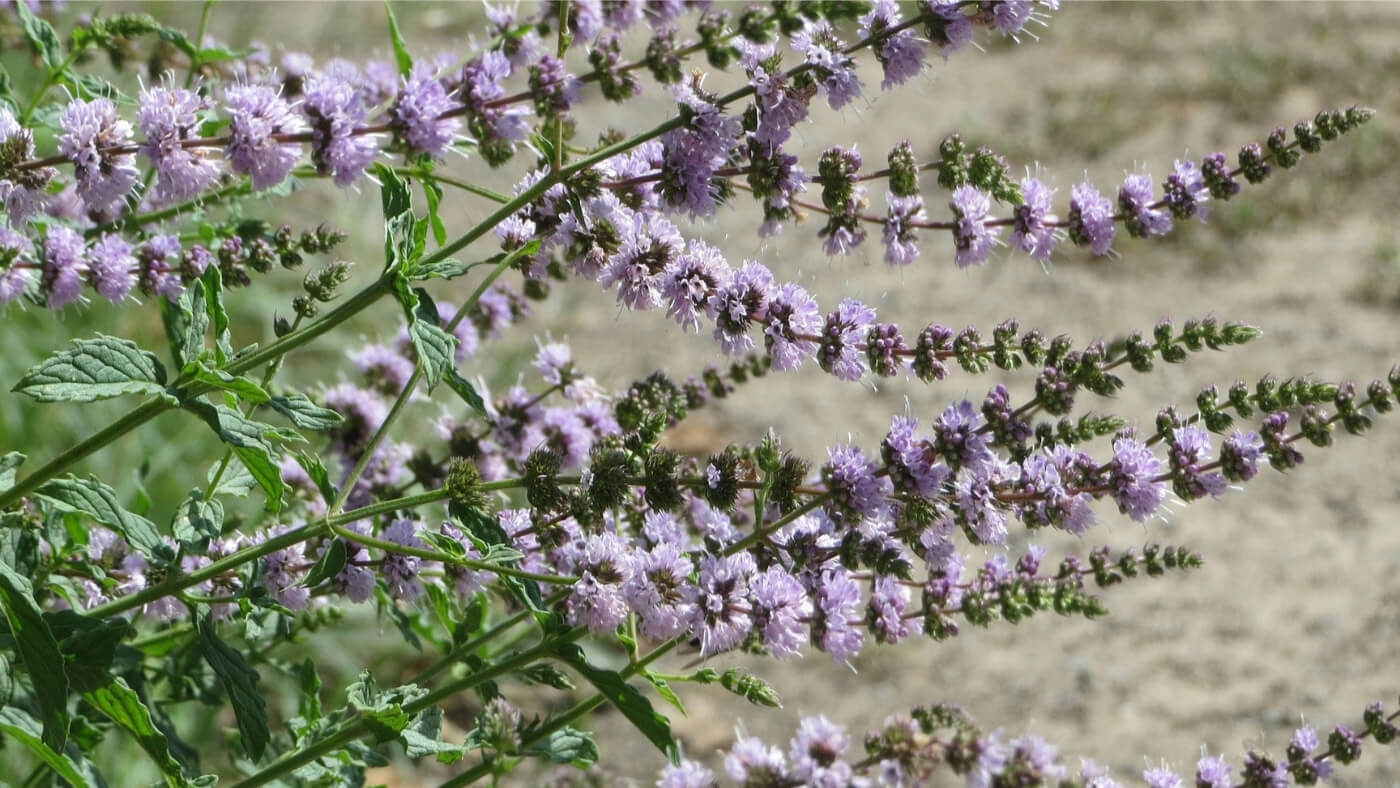| Common name(s): |
spearmint, garden mint, common mint, lamb mint, mackerel mint |
| Family: |
Lamiaceae |
| Origin: |
Mediterranean Europe, Africa, Asia |
| Parts used: |
aerial |
| Constituents: |
antioxidants, vitamins (C, B2, B6, B5, B9), minerals (iron, manganese, copper, potassium), flavonoids, menthol, alpha-pinene, ß-pinene, carvone, cineole, linalool, limonene, myrcene, caryophyllene, dihydrocarvone, cineol, tannins, bitter, phenolic acids |
| Therapeutic actions: |
antifungal, antioxidant, carminative, antispasmodic, diaphoretic, nervine, antiseptic, analgesic, antimicrobial, anti-inflammatory, decongestant
|
| Organs or systems affected: |
digestive system, blood, respiratory system, central nervous system, immune system |
| Main medicinal uses: |
- reduces fatigue and stress
- relaxes stomach muscles
- relieves dermatitis and soothes itching
- helps relieve asthma and bronchitis
- fights intestinal colic, flatulence and other digestive problems
- boosts immune system
|
| Counterindications: |
Spearmint is believed to be generally safe when consumed in amounts normally found in food. The essential oil present side effects if used in large quantities. Headaches, heart burn, and allergic reactions may occur with excessive use. |




